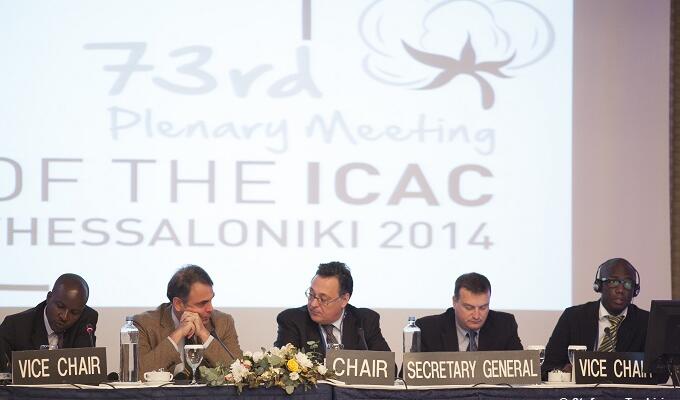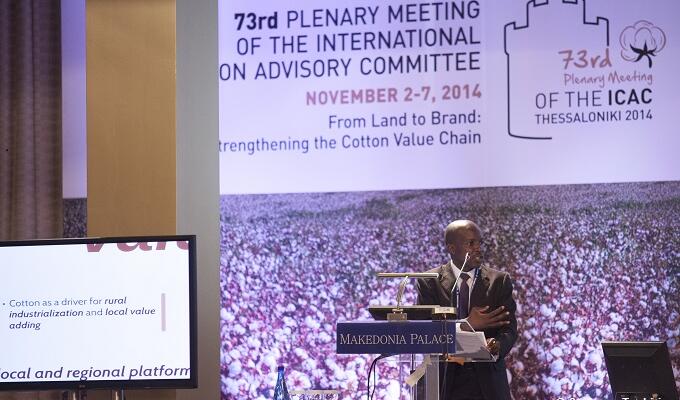

International cotton body welcomes ITC’s regional approach to building textile industries in Africa
The annual meeting of the International Cotton Advisory Committee (ICAC), the international commodity body for cotton and cotton products, welcomed contributions from African Regional Economic Communities (RECs) about their work with the International Trade Centre (ITC) on a regional approach to promoting cotton processing in Africa.
‘We invited the RECs to our Plenary Meeting because our membership is concerned about establishing textile industries in cotton-producing countries to ensure value addition to agricultural products,’ said ICAC Executive Director José Sette.
ITC has facilitated regional strategies for the development of the cotton-to-clothing sectors in the Common Market for Eastern and Southern Africa (COMESA), the Economic Community of Central African States (ECCAS) and the West African Economic and Monetary Union (WAEMU/UEMOA).
Representatives from three RECs were invited to ICAC’s 73rd annual Plenary Meeting in Thessaloniki, Greece in early November, where 33 member governments and 19 non-member governments met to discuss how to strengthen the cotton value chain.
'This is an example of how ITCs interventions support SMEs in moving up the value chain and connecting to markets,’ said Arancha González, ITC’s Executive Director. ‘At a time when cotton prices are near five-year lows, such initiatives are particularly valuable.’
During the gathering in Thessaloniki, representatives from COMESA and ECCAS reported to key national and private sector actors in the global cotton industry on the pan-African implications of the regional approach to strengthening small-scale textile industries.
‘ITC’s contribution is especially valuable in the context of Africa, where many countries do not have the scale to develop industries on their own,’ Mr. Sette said during a visit to Geneva-based ITC.
Regional development would allow African producers to capitalize on their advantages, he added.
‘For the industrial segments of the cotton value chain, and especially textiles, the question of labour costs is a decisive factor. So Africa has advantages in this respect.’
The COMESA-wide Cotton-to-Clothing strategy was launched in 2009 and is designed to increase linkages to boost the production of value-added cotton-related products and services in the East and Southern African (ESA) region. In September 2014, Zimbabwe launched its own cotton-to-clothing strategy, which built on COMESA’s regional strategy. ITC provided technical assistance for the design and implementation of both strategies.
Elsewhere on the continent, UEMOA in 2010 launched an ITC-facilitated strategy targeted to boost cotton-fibre transformation within the Western African region.
In 2011, the ITC-worked with the Economic Community of Central African States (ECCAS) to strengthen the cotton-to-clothing sector while addressing the needs of the region’s fragile states.
The strategies were funded by the European Union (EU) under the EU-Africa Partnership on Cotton, and the African, Caribbean and Pacific Group of States (ACP).



